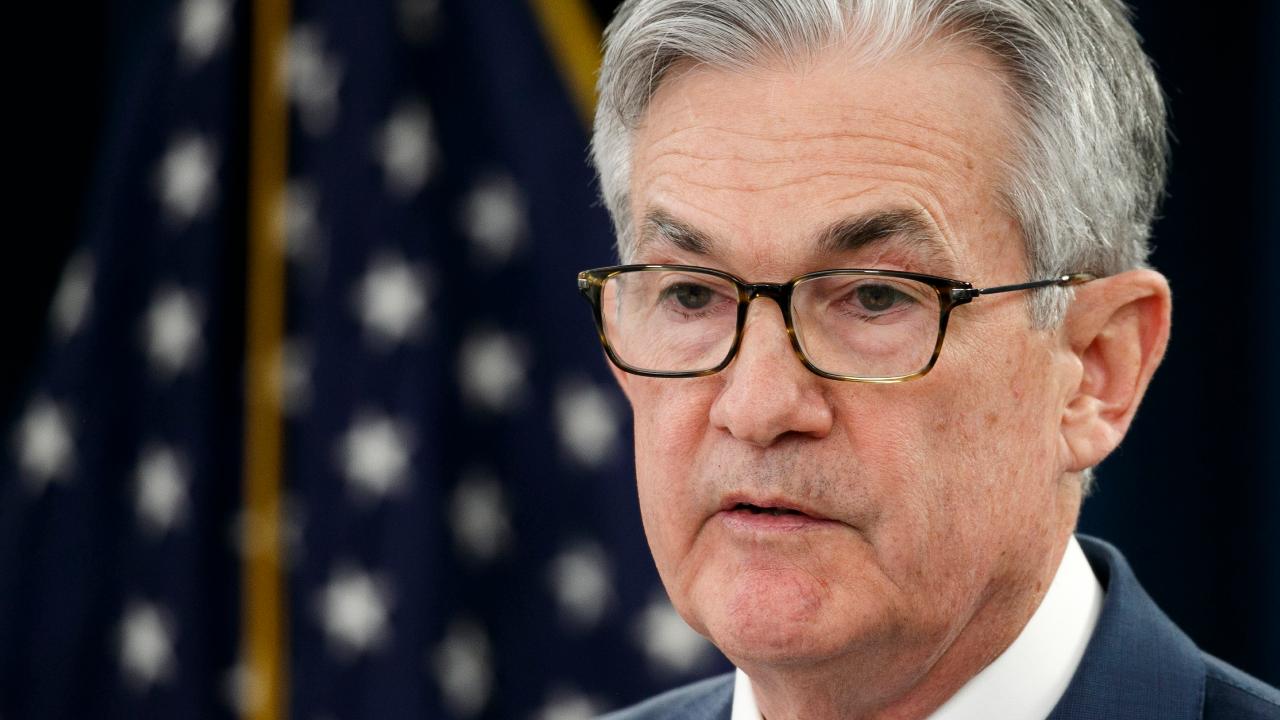Fed makes emergency rate cut to combat coronavirus fallout
Medical advances more likely to buoy markets than economic policy: Analyst
The Federal Reserve slashed interest rates Tuesday in an emergency move to cushion the U.S. economy from the coronavirus outbreak, and Wall Street is already betting it will lower them even further.
The 50 basis-point reduction, the largest cut since the 2008 financial crisis, took the central bank's benchmark fed funds rate to a range of 1 percent to 1.25 percent. It followed heavy pressure from President Trump, who wants the Fed to take rates lower still, and a massive selloff last week in U.S. equities.
“The spread of the coronavirus has brought new challenges and risks," Fed Chairman Jerome Powell said in a news conference on the central bank's decision. "The virus has afflicted many communities around the world, and the outbreak has also disrupted economic activity in many countries. The virus and the measures being taken to contain it will surely weigh on economic activity, both here and abroad, for some time."
CORONAVIRUS REACHING PANDEMIC MAY HURL US ECONOMY INTO RECESSION
Earlier Tuesday, Powell and Treasury Secretary Steve Mnuchin led talks on the coronavirus impact with their counterparts from the G7, a group of seven of the world's largest economies, that yielded no specific commitments, disappointing investors.
Other central banks are "doing what makes sense in their particular institutional contexts," Powell added, and their leaders are keeping in close contact with each other.
Stocks In This Article:
Prior to the Fed's announcement, trading in interest-rate futures had indicated a 100 percent chance the central bank would cut rates 50 points at a meeting later this month, up from a 33 percent chance of just a 25 basis-point cut a week earlier. Markets are now pricing in another cut at the Fed's April meeting, but it may act before then.
Bank of America economist Michelle Meyer projects the central bank will lower short-term rates by another 25 basis points at its March 18 meeting and follow up with a second cut of the same size in April. That would yield a total reduction of 100 basis points before June 30, taking rates to a range of 0.5 percent to 0.75 percent.
"The Fed is reacting in two phases: 1) stem market panic, and 2) respond to the economic data," Meyer said in a note to clients. "The first phase requires aggressive and emergency action, which the Fed delivered today with a 50 basis-point cut. The second phase can prompt a more measured response."

U.S. economic growth may be slower than normal through the third quarter, Meyer added, but she doesn't expect a contraction.
"We believe most Fed officials view this to be a temporary shock," she said. "The risks are that the Fed will try to normalize policy once it becomes clear that the shock has passed."
GET FOX BUSINESS ON THE GO BY CLICKING HERE
While the rate cut prompted an initial surge in U.S. stocks, those gains were wiped out later in the day as the blue-chip Dow Jones Industrial Average whipsawed. The index lost more than 900 points late Tuesday afternoon before rallying.
The coronavirus outbreak is a situation in which medical advances and statistics "are more likely to act as market 'circuit breakers' than any economic policy action," said Alan Ruskin, chief international strategist at Deutsche Bank. "Fiscal policy is typically slow to enact, but unlike 2008, at least this time there should be public outrage for doing too little, and not for doing too much."
The ultimate solutions to the COVID-19 outbreak "will come from others," Powell said, and while the central bank will do its best to shield the economy from the fallout, its decisions will be based on factual data and not political pressure.
"We're never going to consider any political considerations whatsoever," he said. "It's very important for the public to understand that."




















